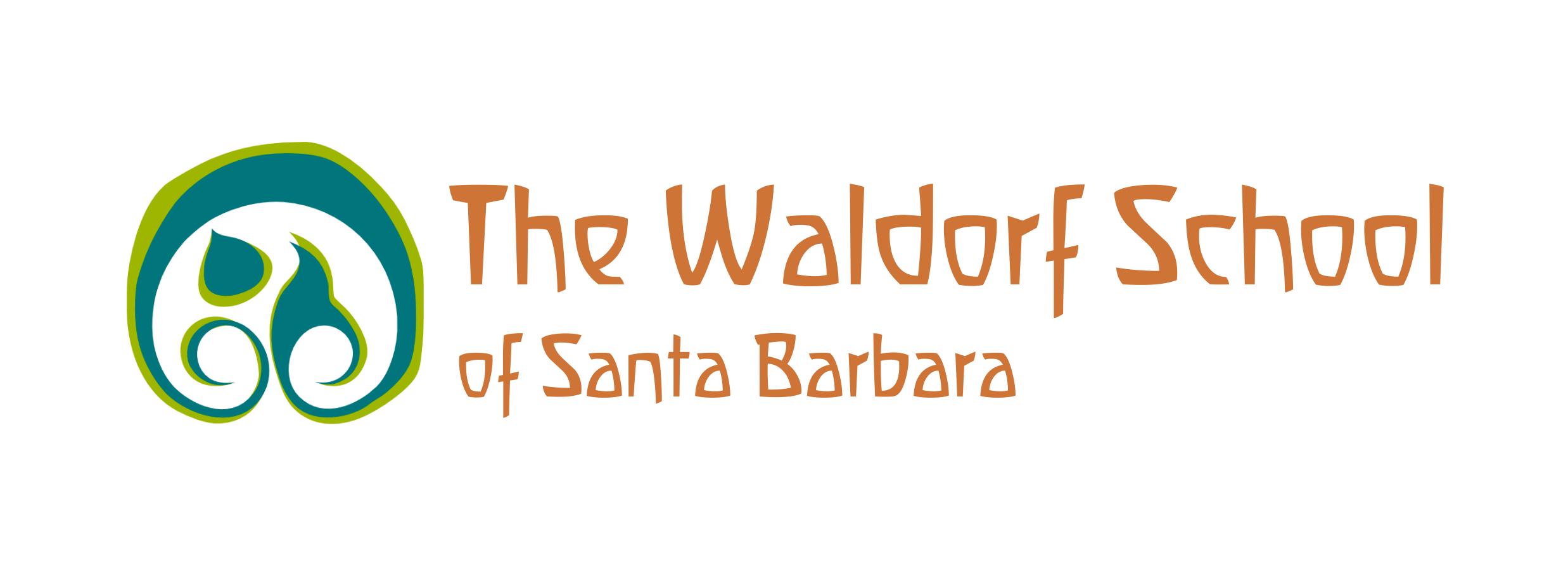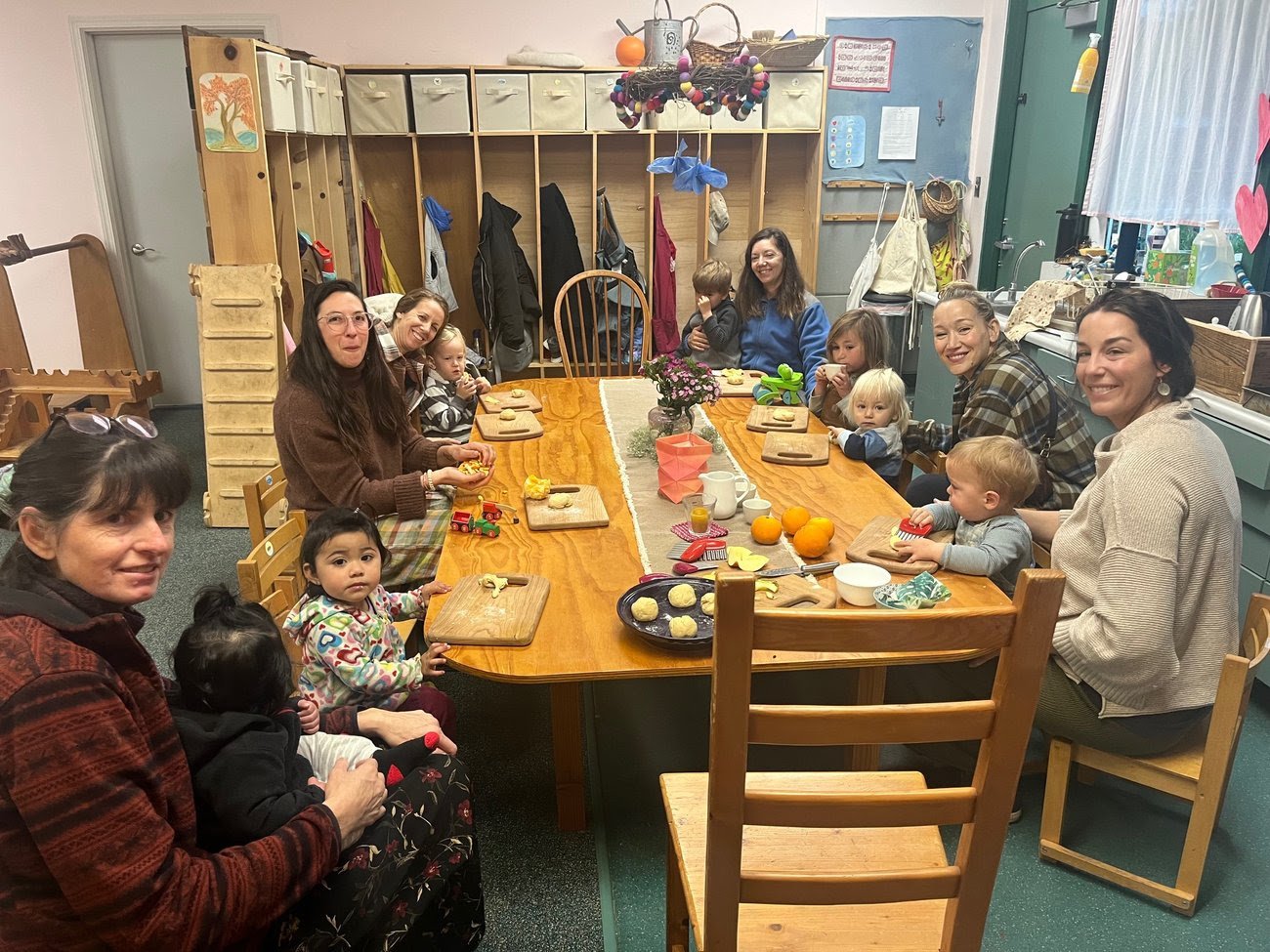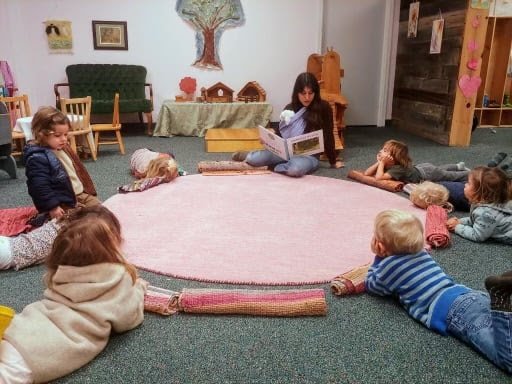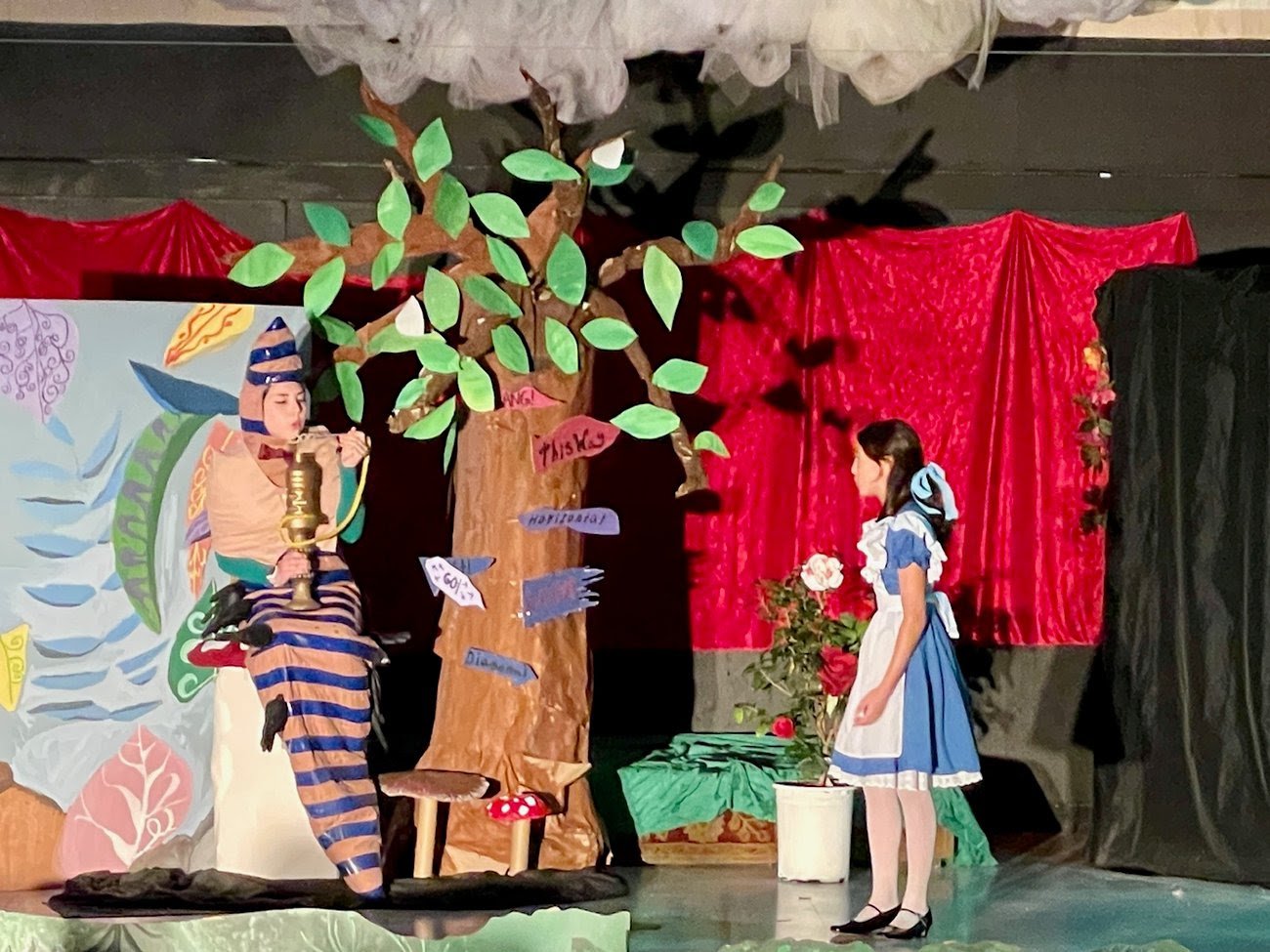Our Sacred Trust
All children on Earth are our Children, our collective responsibility and sacred trust.
— Torrin Finser
Dear Members of The Waldorf School of Santa Barbara Community,
When we visited Ms. Kaster’s Parent-Child Circle, young Archie was sitting outside in the sandbox enjoying a light rain. Nearby, other children—with their mothers—planted cucumbers and snap peas. Inside the classroom, children played, ate oranges, and sat on laps as bread baked in the oven. Soon the children would eat the bread (which they helped knead) and enjoy a puppet show. Ms. Kaster wore an apron with “C.K.” on it. When asked about this apron, we learned that Nala Rosen—Ms. Kaster’s one-time student who is now in high school—embroidered those letters as a gift. Carolyn Kaster started working at WSSB in 1998, in the Early Childhood; then moved to teach in the Grades; and now serves as our administrator and a parent-child teacher. Thank you for coming full circle, Ms. Kaster! And thank you for your deep, various service to this community!
We caught up with Manzanita Rose Nursery, too (a class under the care of Ms. Justine and Ms. Jennifer); and heard from Ms. Justine about the children's “wet felting” (to make chicks for Easter), their coloring, and the circle time wherein the children sang songs in English and Spanish. While listening to Ms. Justine we saw children making soup with oak leaves (leaves which, we were later told, were not oak leaves but “vanilla, lemon juice, strawberries, raspberries, blueberries, and apples”); saw children sitting cross-legged, sifting sand; saw children (most urgently and seriously) placing pieces of wood inside the boat; children pushing wheelbarrows; children swinging on the swing; and children hiding themselves inside milk crates and then, suddenly and ecstatically, hatching themselves from those milk crates as “baby finches.”
Writer and Waldorf teacher Christine Culbert says “child-initiated play is the serious work of childhood and supports the developing child in every realm of life: motor and sensory development, language acquisition, social and emotional capacities, cognitive capacities, and the development of the imagination. Ample opportunities for both indoor and outdoor play are a cornerstone of every Waldorf early childhood environment.”
***
Recently Ms. Anderson’s 7th/8th Grade class put on “Alice in Wonderland”—a production so impressive we feel morally obligated to shamelessly sing its praises. What made the production so impressive was the thoroughgoing gusto of it. This was not a slipshod affair fraught with wooden acting and perfunctory stagecraft. Rather, these children—under the direction of Ms. Anderson and Story Dorie—brought the Brilliant Wackiness and Deep Play of Lewis Carroll alive. Humorous (wittily, whimsically and, at times, macabrely so) and poignant (who will soon forget Alice’s face—the face of gifted thespian Lillian Kanard—when she first discovers herself in Wonderland?), the play entertained and nourished us all. And that’s not mentioning the costumes, props, music (what piano playing!), lighting, and array of many strong actors! And that’s not mentioning the hilarious wrath of the Queen! (Sentence first! Verdict afterwards!)
Thank you, 7th/8th Grade!
With heart,
The Admin Team
PS The Article of the Day is by Mabel Banfield-Nwachi of The Guardian:
"It Went Nuts": Thousands Join UK Parents Calling for Smartphone-Free Childhood
More than 4,000 parents have joined a group committed to barring young children from having smartphones, as concerns grow about online safety and the impact of social media on mental health.
The WhatsApp group Smartphone Free Childhood was created by the former school friends Clare Fernyhough and Daisy Greenwell in response to their fears around children’s smartphone use and the “norm” of giving children smart devices when they go to secondary school.
“I’ve got a seven- and nine-year-old. Daisy’s got kids of a similar age and we were both feeling really horrified and worried and just didn’t want them to have smartphones at 11, which seems to be the norm now.”
Fernyhough and Greenwell hoped the movement would embolden parents to delay giving their children smartphones until at least 14, with no social media access until 16.
But what they expected to be a small group of friends who help “empower each other” has turned into a nationwide campaign after the group reached the 1,000-person capacity within 24 hours of Greenwell uploading an Instagram post to promote it.
“We were completely surprised by this,” Fernyhough said. “It just went completely nuts.”
The pair encouraged people to create local groups to cope with the demand. “Before our eyes, within half an hour, there were 30 local groups that sprung up across the whole country and that is just expanding and expanding,” said Fernyhough.
The group, converted into a community to allow more people to join, now has about 4,500 members.
Smartphones expose children to a “world that they are not ready for” because they can access pornography and content on self-harm and suicide, which can have a detrimental impact on their mental health, Fernyhough said. “It struck me that they just don’t need one. They don’t need a smartphone at that age. A brick phone can do everything that they need.”
Ofcom research found that 91% of children in the UK own a smartphone by the time they are 11 and 44% by the time they are nine.
“We thought we had an extreme view and that’s why we wanted to have solidarity with each other, but what we’ve realised is that, actually, it’s like we’ve lifted the lid on something here by mistake and people really need to talk about this and a lot of people have been feeling like us but not feeling they could talk about it,” Fernyhough said.
Esther Ghey, the mother of Brianna Ghey, called earlier this week for a complete ban on social media access for under-16s, and said more people will have mental health issues unless tech companies take action to restrict access to harmful content.
Brianna was murdered on February 11, 2023 and her mother believes she was vulnerable after spending so much time online.
The goal is to change the norm, Fernyhough said, so that when children come to the end of primary school, the class “bands together and says, ‘Let’s all delay until at least 14.’ That means all the kids from your primary school go on to secondary school with a critical mass of peers who are doing the same thing”, reducing peer pressure.
“We don’t want our kids to turn up in secondary school as the only one,” said Fernyhough. “That’s a nightmare and no one will do that to their child. But if 20%, 30%, even 50% of kids are turning up with parents making that decision, they are in a much better position.
“They can live their childhood as they should do, focus on their learning and enjoy the real world without having to spend their life scrolling, which we all know is not good for them.”
PPS The Poem of the Day is from Jane Hirshfield:
The Weighing
The heart's reasons
seen clearly,
even the hardest
will carry
its whip-marks and sadness
and must be forgiven.
As the drought-starved
eland forgives
the drought-starved lion
who finally takes her,
enters willingly then
the life she cannot refuse,
and is lion, is fed,
and does not remember the other.
So few grains of happiness
measured against all the dark
and still the scales balance.
The world asks of us
only the strength we have and we give it.
Then it asks more, and we give it.






